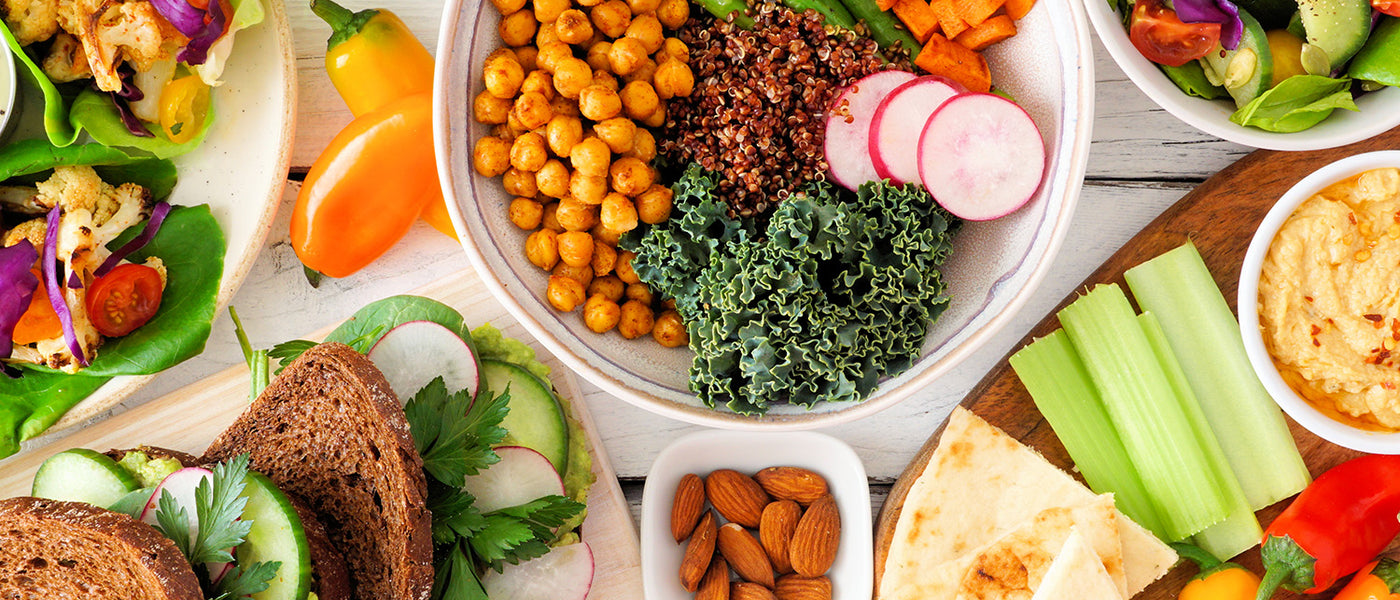
Intermittent Fasting – balancing metabolic and mental wellbeing
'Intermittent Fasting – balancing metabolic and mental wellbeing'
Intermittent fasting appears to be on trend with the popular 5:2 plan and alternate day fasting. This is essentially a way of balancing out your weekly dietary intake creating a "window" (time frame) of restricted food intake (fasting) with a specific duration. This effects the overall calorie balance and the hormonal and metabolic response. Many people report being able to stick to this type of regime for long period of time promoting a sense of achievement and therefore satisfaction.
Having a sense of control with a little structure can be empowering and a positive step in helping achieve your health goals, especially if it’s a tiny habit instead of a grand diet design, or complex programme.
Its important to note that if you are dealing with depression anxiety, or any kind of eating disorder you speak with a health care practitioner before you undergo a regular fasting plan.
Diets: success and failure
However, if you want to give it a try without being too worried about getting hungry or stressed by the fear of not having any food then starting with a 12 hour fast is a great entry point. Make it easy on yourself by wrapping up your evening meal by 7pm. Close down the kitchen and then rest-up until 7am the next morning starting the day with some warm water and fresh lemon, or teaspoon of apple cider vinegar to cleanse the palate and rehydrate the body.
Hey, if your feeling bullish push on until 9.00am and you’ve just completed your first 14 hour fasting window.
You could practice this twice a week for starters to see what works best for you. Be sure to take a mindful moment to check in with yourself to ensure its not taking a negative toll on your mind or mental wellbeing. Ultimately you are in control
How does intermittent fasting work?
During food abstinence, in addition to a reduction to total insulin release - remember that insulin is the anabolic hormone, but it is also responsible for the fat storage.
Reducing spikes in insulin release through constant grazing, or snacking can lead to insulin sensitivity which can lead to weight gain.
Intermittent fasting gives your pancreas a break and allows your body the opportunity to balance itself and reset hormonal overdrive.
The main diets that provide for intermittent fasting are three: fasting on alternate days, fasting for 2 days a week and daily fasting. The period of the day during which the individual eats is limited to 8-12 hours and the remaining 12-14-16 hours are the fasting period.
The focus on the sensual experiences of sight, sound, smell, touch, and taste brings about the full awareness of the food at the moment. This process does not tell you what you should experience; it only suggests that you notice your own experience. Using any of these practices can help to develop a mindful approach to living by bringing full attention to each moment, without judgment, while maintaining a feeling of calm.
Benefits of intermittent fasting
Scientific studies are increasingly reporting on the health benefits of intermittent and prolonged fasting. Not only the slimming and contrast of free radicals, which translated may seem an elixir of long life, but also resources that may regulate high levels of blood sugar, that can lead to inflammation and insulin resistance.
In fact, research also shows calorie restriction including amino acids and protein seems to increase life expectancy. In some studies, people practicing intermittent fasting report that it may support reduction of abdominal girth, improved insulin sensitivity and therefore a lower risk of developing diabetes, preservation of lean (muscle) tissue and increased cognitive abilities. Intermittent fasting may also influence mood general wellbeing and aging.
The island of Okinawa (south of Japan) holds the absolute record for the number of centenarian inhabitants in good health. That is why it is one of the five blue zones in the world. In these regions of the world, they regularly practice intermittent fasting. Their diet contains mainly vegetables, algae, goya, tofu, fish and very little meat. Another very important aspect that characterizes the food style of the inhabitants of this Japanese island is calorie moderation; a famous local saying suggests eating about 80% of the food needed to feel full or satiated.
Useful tips for intermittent fasting
- As with most health or dietary interventions there is no one-size- fits- all approach.
- Start with the easiest method that suits YOU whether a 12:12 window a few times per week, 5:2 or another time restricted eating window
- You may choose to use the ProLon Reset one day fast which is macro balanced not to trigger nutrient sensing pathways.
- Generally, women may take a more relaxed approach than men with shorter fasting periods.
- Stick with whatever you feel you can tolerate and sustain in the longer term so as not to develop any negative consequences.
- Whatever you choose its equally important to eat well during the non-fasting period for overall health and wellbeing and fits your lifestyle.
As helpful as intermittent fasting sounds, it’s not for everyone. Its important to be mindful if there is any history of eating disorders or are taking medication that cannot be taken on an empty stomach, be sure to talk with your primary care practitioner or nutritionist before starting.

